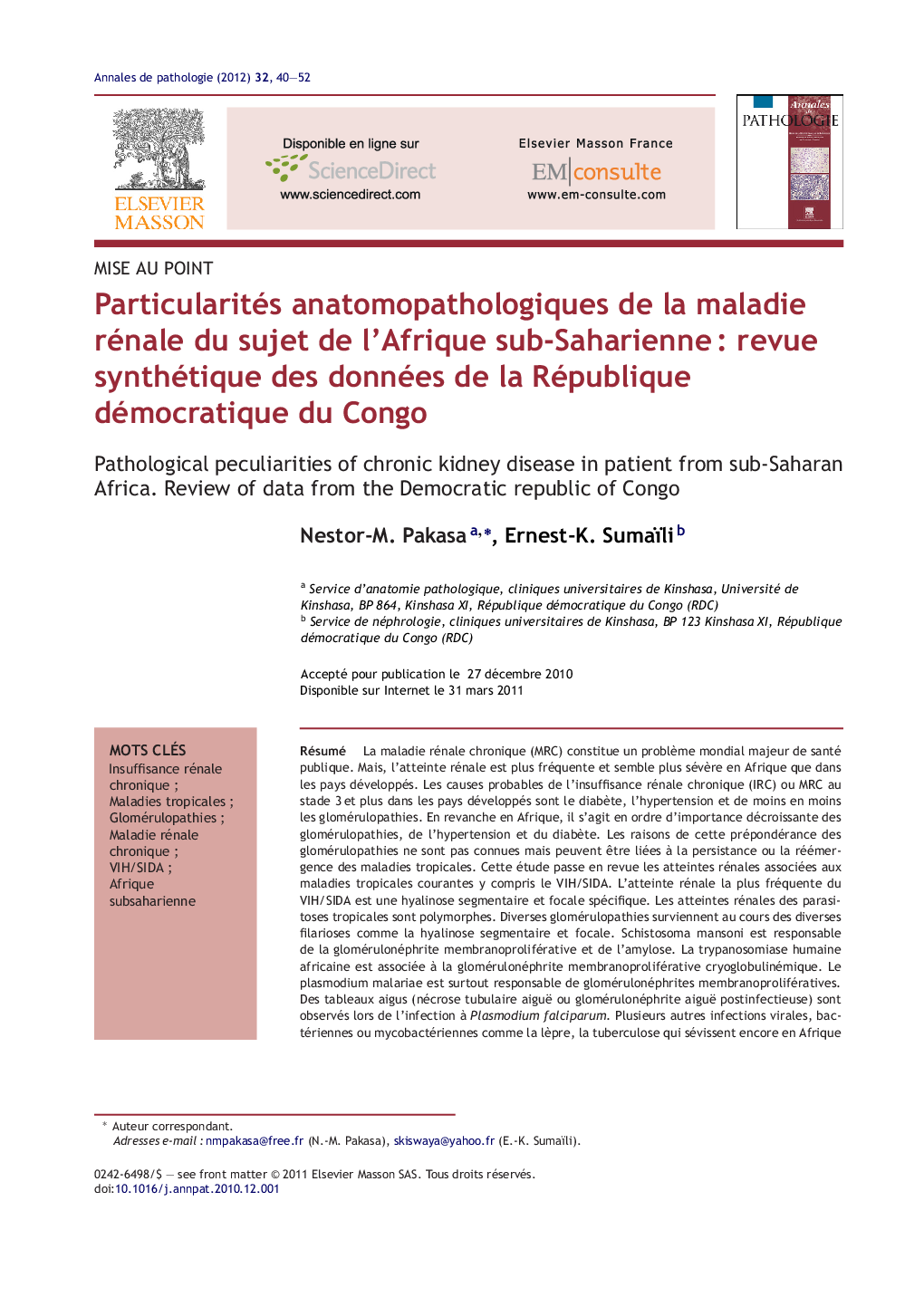| Article ID | Journal | Published Year | Pages | File Type |
|---|---|---|---|---|
| 4128425 | Annales de Pathologie | 2012 | 13 Pages |
Abstract
Chronic kidney disease (CKD) is a major global public health problem. But kidney involvement is more common and appears more severe in Africa than in developed countries. The likely causes of end stage renal disease (ESRD) or CKD stage 3 and above in developed countries are diabetes, hypertension and less frequently glomerular diseases. In contrast, in decreasing order in Africa are glomerulopathies, hypertension and diabetes. The reasons for this preponderance of glomerular diseases are not fully known but may be linked to the persistence or reemergence of tropical diseases. This study reviews the kidney involvements more associated with common tropical diseases including HIV/AIDS. The most common HIV/AIDS lesion is a specific focal and segmental glomerulosclerosis (FSGS) termed HIV-associated nephropathy (HIV-AN). Renal complications of tropical parasites are heterogenous. Various glomerulopathies like FSGS occur during various filariasis infections. Schistosoma mansoni is responsible for membranoproliferative glomerulonephritis and amyloidosis. Human African trypanosomiasis is associated with cryoglobulinemic membranoproliferative glomerulonephritis. The Plasmodium malariae is mainly responsible for membranoproliferative glomerulonephritis. Acute patterns (acute tubular necrosis or acute postinfectious glomerulonephritis) are observed during Plasmodium falciparum infection. Several other viral, bacterial or mycobacterial infections like leprosy and tuberculosis still prevalent in Africa can also affect the kidney. Sickle cell disease is responsible for a variety of renal injuries. In conclusion, kidney lesions linked to tropical diseases partly explain the peculiar pattern of CKD of the black race and play a significant role in the current outbreak of the CKD in Subsaharan Africa.
Related Topics
Health Sciences
Medicine and Dentistry
Pathology and Medical Technology
Authors
Nestor-M. Pakasa, Ernest-K. Sumaïli,
